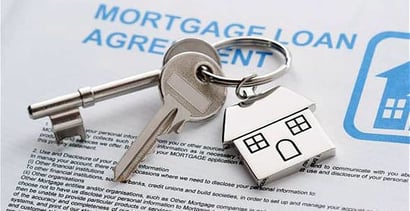

If you’re considering buying a home, you’ve got a big choice to make. Do you go with a fixed rate mortgage or an adjustable mortgage?
What’s best for the environment we’re currently in? And come to think of it, what’s the difference between an ARM and a fixed rate mortgage?
An ARM, or adjustable rate mortgage, is just what it sounds like – a home loan with a rate of interest that varies based upon market index rates.
A fixed rate mortgage, on the other hand, stays at the same rate as you started with for the duration of the mortgage period.
Why would someone choose an ARM over a fixed rate loan?
It’s quite simple, actually. Adjustable rate mortgages are usually cheaper, at least initially. Many ARMs are at least a full percentage point below where an equivalent fixed rate mortgage is, but it won’t stay that way.
An ARM will have a period of time when it is locked at the beginning rate, after which it will adjust – usually upward.
Once an ARM starts adjusting, it will mean your payment fluctuates, sometimes even monthly. The amount it can adjust is capped at a certain percentage rate – let’s say 3 percent per year.
It also has a maximum it can climb to, so you’ll know the highest rate you’ll ever pay.
“If you plan to stay a long time,
it’s better to lock in a fixed rate.”
Which type of mortgage is better?
As with most questions about finance, it depends. If we’re in a period of historically low interest rates, such as we’ve experienced recently, it may be worth locking in a low fixed rate.
However, if you believe interest rates are high and will fall in the future, or if you plan to refinance your ARM in the next few years, it may be worth it to have the lower initial rate of an ARM.
One thing to keep in mind is the type of mortgage you choose can mean a difference of thousands of dollars a year in interest charges.
It’s worth looking closely at the loans that are available and being sure you understand all of the details about them.
Ask yourself how long you plan to stay in the home.
If it’s a so-called starter home and you plan to move in a few years, keeping your initial costs low is important. If you plan to stay for a long time, it’s almost always better to lock in a fixed rate.
Photo source: telegraph.co.uk
Advertiser Disclosure
BadCredit.org is a free online resource that offers valuable content and comparison services to users. To keep this resource 100% free for users, we receive advertising compensation from the financial products listed on this page. Along with key review factors, this compensation may impact how and where products appear on the page (including, for example, the order in which they appear). BadCredit.org does not include listings for all financial products.
Our Editorial Review Policy
Our site is committed to publishing independent, accurate content guided by strict editorial guidelines. Before articles and reviews are published on our site, they undergo a thorough review process performed by a team of independent editors and subject-matter experts to ensure the content’s accuracy, timeliness, and impartiality. Our editorial team is separate and independent of our site’s advertisers, and the opinions they express on our site are their own. To read more about our team members and their editorial backgrounds, please visit our site’s About page.




